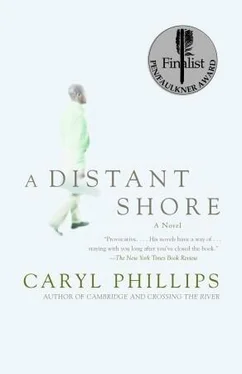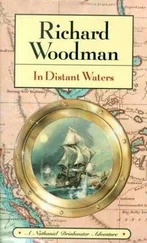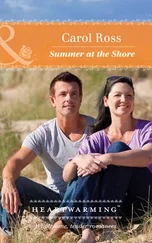I spend one hour in the town, choosing my shopping for the week. I am happy, for the weather is now becoming very pleasant. In this country, summer comes in the night. A man can go to bed in winter, and when he wakes up nature is once again singing and his skin is warm. I think of this miracle and I am happy. However, for most of my hour in town I am thinking of a plan that will enable me to meet this woman. The truth is, I need to meet more village people. The letter said that these people do not want me in their village, but they do not know me. Perhaps it is my responsibility to get to know them? If I am to make my new life in this village, then it is possible that I have to do more than just sit alone inside my bungalow, or go for the occasional drive in my car. But, after the unpleasantness by the water, I do not like to walk abroad during the day. At night I am obliged to go out, for it is my job, but when I travel at night with a torch it is a different matter, for I imagine that I command respect. I am official.
When I return to the village, I park my car outside the small medical centre at the bottom of the hill. Mr. Anderson informed me that such places are always in need of drivers. He said this to me when he gave me the news that Mike’s car would soon be mine. “It could be a godsend for getting to know people.” Only now do I fully understand his words. The waiting room is empty, but I can see the young nurse sitting behind her desk, for the door to her office is wide open. She looks up and puts down her pen.
“Can I help you, love?”
I do not know if I should enter, or if I should wait and talk to her from where I am standing. I decide to take a few steps forward and risk entering into her office. She points to a seat, and I am relieved that I appear not to have caused her any offence.
“Sit down, if you like. It’s the end of the day and I doubt if I’ll be seeing anybody else.”
I look at this dark-haired woman and realise that she probably imagines me to be a patient.
“I have come to volunteer my services. As a driver.”
“Oh, good. We can always use drivers. I take it you’ve got your own vehicle, have you?”
I point outside, although it occurs to me that from where the young woman is sitting she cannot see my car. “Yes, I have my own car.”
“I see. Good.” She is happy now and she pushes a pad and a pen across the desk. “You just write down your name and phone number. What we do is whenever a patient needs a lift into town, then we get them to give you a call to see if you’re free.”
I begin to write down my details. As I do so, she continues to talk.
“That way you’re not bothered by having to chase people up. And don’t be afraid to say ‘no’ if you’re busy. You’re a volunteer, not a taxi driver. They have to understand that you’ve got your own life to be getting on with.”
I push the pad and pen back in her direction and I stand. I hold out my hand for her to shake, but hers is a limp handshake.
I sit in the dark with my hands embracing a cup of coffee. I feel safe in my bungalow. The letter is still here, but I feel safe. First, I will complete this cup of coffee and then I will begin my patrol. I venture out with my torch in the early evening, just when the sky begins to darken. Later, when the sky is black, I will go out for a second time. Usually this is around midnight, after people have returned home from their drinking and when the village is becoming peaceful for the night. The moonlight catches the photograph of Mike that sits on my mantelpiece. If he were alive today, Mike would have an alternative to the pub, or staying in with Mr. and Mrs. Anderson. He could always come here and keep me company. We could talk about Mike’s experiences growing up in Ireland, and how his father begged him not to fight against the English, and how he first came to England on the Holyhead ferry, and how he found himself trapped into marriage against his will. My friend repeated these stories many times, but I liked to hear the sound of his voice. And, of course, listening to the sound of my friend’s voice meant that I did not have to answer any questions about myself. I look at Mike’s friendly grin and I feel sadness beginning to flood my body.
The phone call in the middle of the night roused me from a deep sleep. And then I heard Mum scream, and then I listened to Mr. Anderson trying to calm Mum down, but I dared not rise from my bed. It was Mr. Anderson who knocked on the door and who came in and sat down on the solitary chair. With a heavy heart, Mr. Anderson conveyed to me the news that Mike had been involved in a road accident and that he would no longer be among us. My body felt cold, and I looked away from Mr. Anderson. Of all the people to die in a road accident, Mike seemed the least likely. Mike was an extremely fine master of roadsmanship. And for this tragedy to occur during his first European trip was too cruel. Mike had been very excited about taking his lorry to Germany and “going into Europe.” I could also see that Mr. and Mrs. Anderson were very happy, and not only for Mike. After forty years, Mr. Anderson was leaving the contracting business and they were both retiring to run a small hotel in Scotland, which was the part of the world where Mum had originated. And now that I was “legal,” Mr. Anderson had secured for me a position as a night-watchman. He had spared me the anxiety of having to invent a reason why I would be leaving their home. And then the difficult phone call in the middle of the night robbed us of our great joy, and for days afterwards my dreams became unpleasant.
I remembered walking north, to the left of the sun’s rising. It was not possible for me to remain loyal to the cleared paths, and so my secret journey took many weeks. Eventually I reached my family’s house, but soon afterwards the bloodthirsty government troops arrived. My father pushed his only son into a cupboard and begged me to remain quiet, no matter what happened. He stumbled over his words and his breath was ripe with the stench of alcohol. “Gabriel, if one man must survive, it must be you.” There was no time for me to argue, and to do so would have been disrespectful. As the government troops kicked at the door to our family house, I entered the cupboard and my sad father closed the leaves of wood in my face. I watched without fear. I watched with ice in my heart. I remembered my mother lying on a floor in my now far-off country with blood pouring from her wounds. I remembered my father and my sisters being shot like animals. My dreams contained my history. Night and day I tried not to think of these things any more. I tried not to think of these people any more. I wanted to set these people free so that they might become people in another man’s story. I wanted to stop dreaming of them at night, or thinking about them in the day, but after Mike’s death I was very disturbed and I could escape neither myself, nor my country, nor my family. For three full days and three full nights before the funeral I was a miserable man. A coward. But I could not return to my country, for there was nothing for me to return to. I possessed no family. Each time I opened my eyes I heard Mum crying. I was a coward who had trained himself to forget. I accepted from people. From Mr. and Mrs. Anderson. I was no longer “Hawk.” I was no longer my mother’s Gabriel. It was Solomon who learned of Mike’s death. It was Solomon who was lying in a warm bed in a strange room among these kind people. It was Solomon. I was Solomon.
The funeral was difficult, for not only did I bid farewell to Mike, I was also forced to sever my links with Mr. and Mrs. Anderson. After Mr. Anderson presented me with the keys to Mike’s car, he handed me a piece of folded paper with their new address and telephone number in Scotland. He did not instruct me to make sure that I visited. He was simply setting me free. To visit or not visit would be my decision. This was Mr. Anderson’s way. Mum was too distraught to say anything, and even the prospect of a return to her beloved Scotland could not raise her spirits. As the sky wept, she also wept. After they left I walked back to their house feeling the weight of Mike’s car keys in my pocket. Mike was a good driver, and I later learned that the accident had not been his fault. A car had lost control and crossed the centre of the road. Mike had swerved to avoid the car and turned his lorry over. All of this happened in Kent, so Mike never did leave the country. Before the funeral, Mr. Anderson gave me a framed photograph of Mike. That same night, I placed the photograph of Mike on the mantelpiece of my new bungalow. I put Mike’s car keys next to the photograph. Mike was in general mild, affable, generous, benevolent and just; he was to me a friend. Thank you, Mike, I said. I looked around. You have given Solomon a new home. In England.
Читать дальше











![Карен Кингсбери - A Distant Shore [calibre]](/books/384306/karen-kingsberi-a-distant-shore-calibre-thumb.webp)
